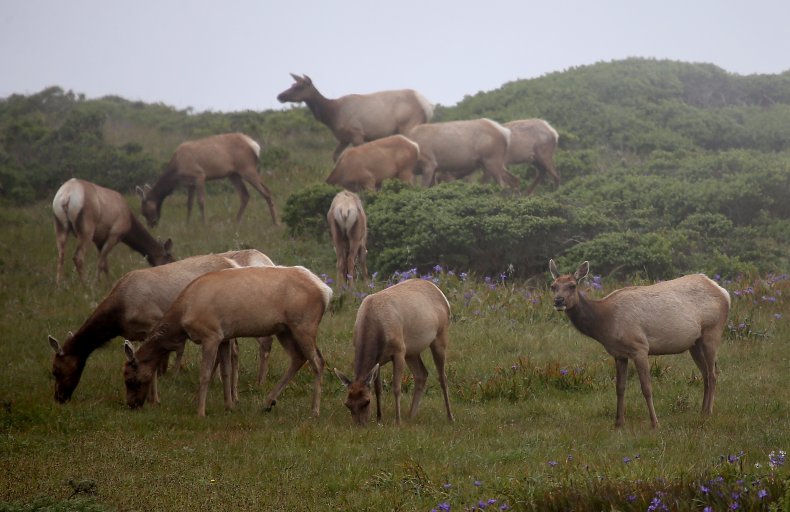Animal Rights Organization Sues Over Deaths of 152 Elk
The Animal Legal Defense Fund is suing the National Park Service for failing to provide sufficient amounts of food and water to Point Reyes National Seashore's resident tule elk, 152 of which succumbed to starvation, dehydration, or a combination of the two within the past year, according to a lawsuit filed by three California residents and the animal rights organization.
Founded in 1979, the fund aims "to protect the lives and advance the interests of animals through the legal system," according to its website. Its causes include ending canned hunting and trophy hunting; cracking down on the operation of puppy mills; and improving the living conditions of livestock."
Filed in federal court on Tuesday, the suit alleges the park service has been negligent in their treatment of the park's elk and intervention is necessary to prevent further casualties, the Associated Press reported. Besides Roosevelt elk, tule elk are the only subspecies of elk native to California. In 2020, 22 herds numbering an estimated 5,700 individuals roamed the state, according to the park's website.
However, the onset of a drought so intense it prompted Gov. Gavin Newsom to declare a drought emergency in May has devastated their numbers. Within the past 12 months, 152 animals, more than one-third of the park's total population, have perished, according to the lawsuit, the Associated Press reported.
Unable to surmount a fence the park service erected decade ago to stymie competition between elk and cattle, the elk languished as stock ponds and other water sources in the preserve dried up. While the park put out troughs of water for the elk, the suit states, only one of the four herds at Tomales Point, the northwestern tip of Point Reyes Peninsula, had access to them. The elk preserve is located on the peninsula.
"The National Park Service has a responsibility to protect and preserve these beautiful animals. The idea that depriving them of food and water somehow fulfills that responsibility isn't just absurd, it's undeniably inhumane," attorney Kate Barnekow, who is representing the plaintiffs, said, according to the Associated Press.
When environmentalist Jack Gescheidt, one of the plaintiffs, brought the elk water, he received a citation, according to the Assocaited Press.
"The knowledge that approximately a third of the Tomales Point herd of tule elk has already died from a lack of adequate water and forage is absolutely chilling," he said, according to the Associated Press. "I see these beautiful animals and want them to experience a healthy, happy, safe life, but I know that so many of them will die—through no fault of their own."
Hunted for sport and displaced by cattle, the elk were nearly driven to extinction in the 1850s. By the 1870s, some contemporary reports indicated, fewer than 30 survived. Thanks to the conservation efforts of cattle rancher Henry Miller, the animals made it out of the 19th century alive, but they only began to make a comeback locally when two bulls and eight cows were reintroduced in 1978, according to the park's website.


